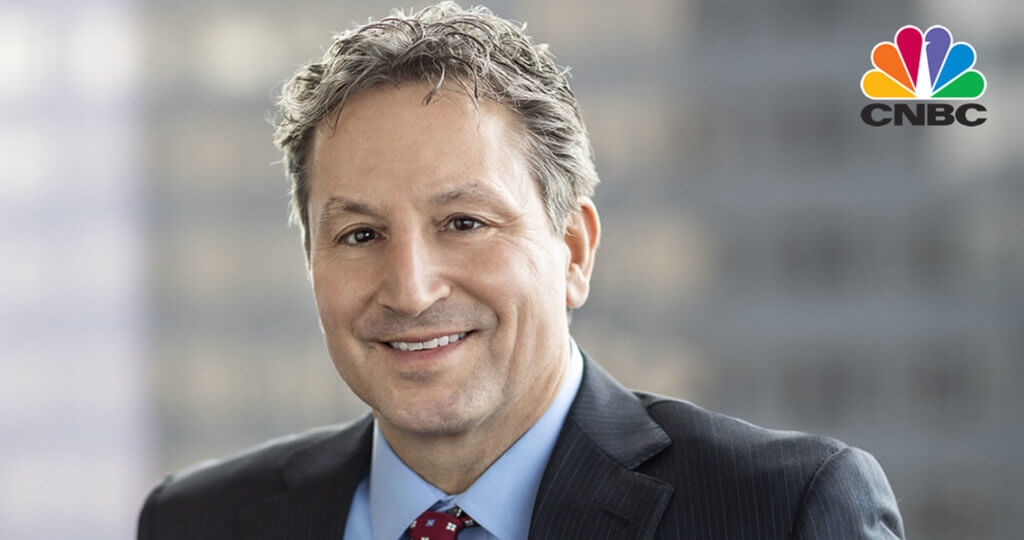Oakmark International Fund – Investor Class
Average Annual Total Returns 03/31/24
Since Inception 09/30/92 8.55%
10-year 3.27%
5-year 5.51%
1-year 4.42%
3-month 0.11%
Expense Ratio: 1.05%
Expense ratios are from the Fund’s most recent prospectus dated January 28, 2024; actual expenses may vary.
Past performance is no guarantee of future results. The performance data quoted represents past performance. Current performance may be lower or higher than the performance data quoted. The investment return and principal value vary so that an investor’s shares when redeemed may be worth more or less than the original cost. To obtain the most recent month-end performance data, view it here.
The Oakmark International Fund (“the Fund”) returned 0.11% for the quarter ended March 31, compared to the benchmark, the MSCI World ex USA Index (net), which returned 5.59% for the same period. In addition, the Fund has returned an average of 8.55% per year since its inception in September 1992, outperforming the MSCI World ex U.S. Index’s (net) return of 6.10% over the same period.
Daimler Truck Holding (Germany) was a top contributor during the quarter. In March, the truck and bus manufacturer released strong fourth-quarter results, accompanied by 2024 margin guidance that significantly exceeded consensus expectations. The expected margin resilience is in spite of a weaker global truck market and is a result of management’s decisive actions to improve pricing, drive higher service penetration and increase the flexibility of the cost base. This is most evident in the Mercedes-Benz segment, primarily serving the European and Latin American markets, which increased its adjusted EBIT margin from sub-1% in 2019 to over 10% last year. We are impressed by management’s execution following the 2021 spin-off from the former Daimler Group and believe the company is positioned to earn structurally higher through-cycle margins than in the past. We met with CEO Martin Daum following the release and continue to see an attractive upside for this investment.
Bayer (Germany) was a top detractor during the quarter. In January, Bayer had a larger than average adverse jury verdict in its long-running RoundUp litigation. We continue to believe that these headline verdicts will be reduced substantially on appeal and note that Bayer has since won two cases in a row. Then, in March, the company held its long-awaited capital markets day. The event contained limited material strategy updates as Bayer is no longer pre-communicating its litigation strategy, is erring conservatively by not issuing mid-term targets, and is deferring a break-up until its balance sheet is in better shape. This didn’t bring the quick wins some investors had hoped for, but we support the strategy and appreciate management’s sharp focus on improving profitability and cash generation while starting to cut away at the company’s bureaucracy. The full-year 2023 results and 2024 guidance were both in line with our expectations.
We did not eliminate any positions during the quarter, and we initiated positions in Brambles, Smurfit Kappa Group and Smith & Nephew:
Brambles (Australia) is the world’s largest provider of pooled pallets, crates and containers. The company’s pallet-pooling model delivers an attractive value proposition to its customers by enabling standardization and seamlessly connecting supply chain participants to ensure the efficient flow of goods across the world. Much of the market still uses non-pooled pallets, which translates to attractive long-term growth opportunities for the pooling model. As the market share leader, Brambles benefits from economies of scale, which have provided cost advantages and led to attractive returns on capital. In addition, we like that digital initiatives at the company are starting to yield results in the form of lower pallet loss rates, lower capital costs, lower operating expenses, and better returns. Since we sold our position in Brambles in 2022, its share price has lagged the market despite fundamental performance exceeding our estimates. This has provided us the opportunity to reestablish our position at a discount to our estimate of intrinsic value.
Smurfit Kappa Group (Ireland) is Europe’s leading containerboard and corrugated box producer. The company’s share price has been under pressure due to a unique downturn in industry volumes caused by supply chain reverberations from the Covid-19 pandemic, which we believe is beginning to unwind. In addition, in September 2023, Smurfit Kappa announced an agreement to acquire WestRock, the second-largest producer of containerboard and corrugated boxes in North America. WestRock has historically underperformed its competitors, and we believe the company’s asset base stands to benefit from strategic investments and operational improvements under its experienced management team. As a part of the acquisition, Smurfit Kappa plans to list the combined entity in the U.S., which offers upside optionality as U.S. producers have historically traded at a premium to European peers. The improving industry outlook and the opportunity to drive improvements at WestRock provided the opportunity to purchase shares at a discount to our estimate of the intrinsic value of the anticipated combined company.
Smith & Nephew (U.K.) is a global medical device manufacturer operating in attractive end markets. The company currently generates the majority of its earnings through its sports medicine and advanced wound management businesses, which command strong market share positions and offer favorable growth prospects. The company’s orthopedics business has historically underperformed its peers, but we are pleased by the decisive actions taken by new CEO Deepak Nath, which we expect will improve growth, margins and return on invested capital for the orthopedics segment. We believe the company is in the early stages of its margin improvement journey and an upgrade of the product portfolio in recent years will drive sustainably higher revenue growth than in the past. We were able to purchase Smith & Nephew shares at a discount to our estimate of intrinsic value, despite the company’s improving fundamental outlook.
Geographically, we ended the quarter with approximately 68.6% of our holdings in Europe, 16.6% in the U.K. and 6.2% in Asia. The remaining positions are 3.1% in Japan, 5.1% in North America (Canada and the U.S.) and 0.3% in Australasia.
The securities mentioned above comprise the following percentages of the Oakmark International Fund’s total net assets as of 03/31/2024: Bayer 3.3%, Brambles 0.3%, Daimler Truck Holding 2.1%, Mercedes-Benz Group 2.9%, Smith & Nephew 0.4%, Smurfit Kappa Group 0.2% and WestRock 0%. Portfolio holdings are subject to change without notice and are not intended as recommendations of individual stocks.
The information, data, analyses, and opinions presented herein (including current investment themes, the portfolio managers’ research and investment process, and portfolio characteristics) are for informational purposes only and represent the investments and views of the portfolio managers and Harris Associates L.P. as of the date written and are subject to change and may change based on market and other conditions and without notice. This content is not a recommendation of or an offer to buy or sell a security and is not warranted to be correct, complete or accurate.
Certain comments herein are based on current expectations and are considered “forward-looking statements.” These forward looking statements reflect assumptions and analyses made by the portfolio managers and Harris Associates L.P. based on their experience and perception of historical trends, current conditions, expected future developments, and other factors they believe are relevant. Actual future results are subject to a number of investment and other risks and may prove to be different from expectations. Readers are cautioned not to place undue reliance on the forward-looking statements.
EBIT is a measure of a firm’s profit that includes all expenses except interest and income tax expenses. It is the difference between operating revenues and operating expenses.
The MSCI World ex USA Index (Net) is a free float-adjusted, market capitalization-weighted index that is designed to measure international developed market equity performance, excluding the U.S. The index covers approximately 85% of the free float-adjusted market capitalization in each country. This benchmark calculates reinvested dividends net of withholding taxes. This index is unmanaged and investors cannot invest directly in this index.
On occasion, Harris may determine, based on its analysis of a particular multi-national issuer, that a country classification different from MSCI best reflects the issuer’s country of investment risk. In these instances, reports with country weights and performance attribution will differ from reports using MSCI classifications. Harris uses its own country classifications in its reporting processes, and these classifications are reflected in the included materials.
The Fund’s portfolio tends to be invested in a relatively small number of stocks. As a result, the appreciation or depreciation of any one security held by the Fund will have a greater impact on the Fund’s net asset value than it would if the Fund invested in a larger number of securities. Although that strategy has the potential to generate attractive returns over time, it also increases the Fund’s volatility.
Investing in foreign securities presents risks that in some ways may be greater than U.S. investments. Those risks include: currency fluctuation; different regulation, accounting standards, trading practices and levels of available information; generally higher transaction costs; and political risks.
All information provided is as of 03/31/2024 unless otherwise specified.







